Affiliate disclosure: This post may contain affiliate links. Please see our Privacy Policy.
Homesteading in Vermont became our dream, and eventually our reality, as we sought a more sustainable, self-sufficient life away from the modern world. This is our origin story, a journey of learning, challenges, and rewards as we built our homestead from the ground up in the heart of Vermont’s rural wilderness.
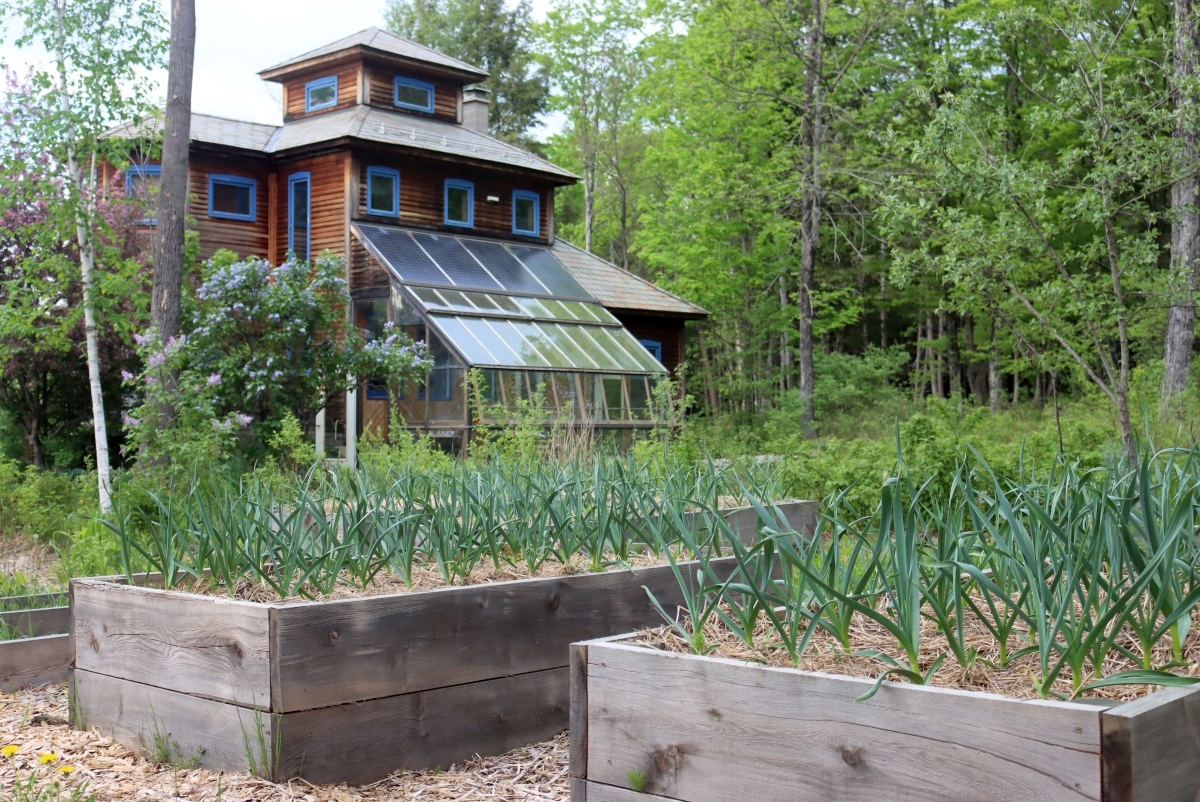
Like many young couples disillusioned with the modern way of life, we dreamed of owning our own homestead. A place to stretch out, raise our own food, and reconnect with the world around us—free from the grind of office jobs and the distractions of city living.
Too many years of staring at a computer screen and being stuck in cubicles had worn down our resolve. We wanted something better—something real, something that felt more connected to nature. We wanted to live life on our terms, and for us, that meant a homestead deep in the woods.
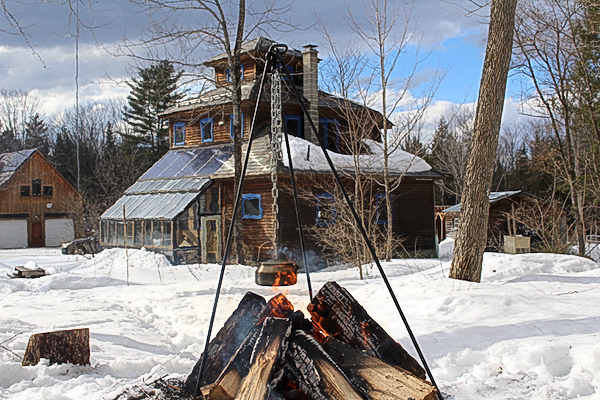
We’re not alone, and believe it or not, one of the most popular games all the kids (Read: Disillusioned Young Working Adults) are playing these days is about just that. The game “Stardew Valley” has sold more than 40 million copies, making it one of the bestselling games of all time. It’s a homestead simulator game, with the premise that someone working a dead end soul sucking job has been gifted farmland by a relative.
It starts with this quote,
“There will come a day when you feel crushed by the burden of modern life…and your bright spirit will fade before a growing emptiness. When that happens, my child, you’ll be ready for this gift.“
No one gifted us our homestead, we worked and scrimped and saved for it. But still, we view the chance to live this life as we do as a profound gift.
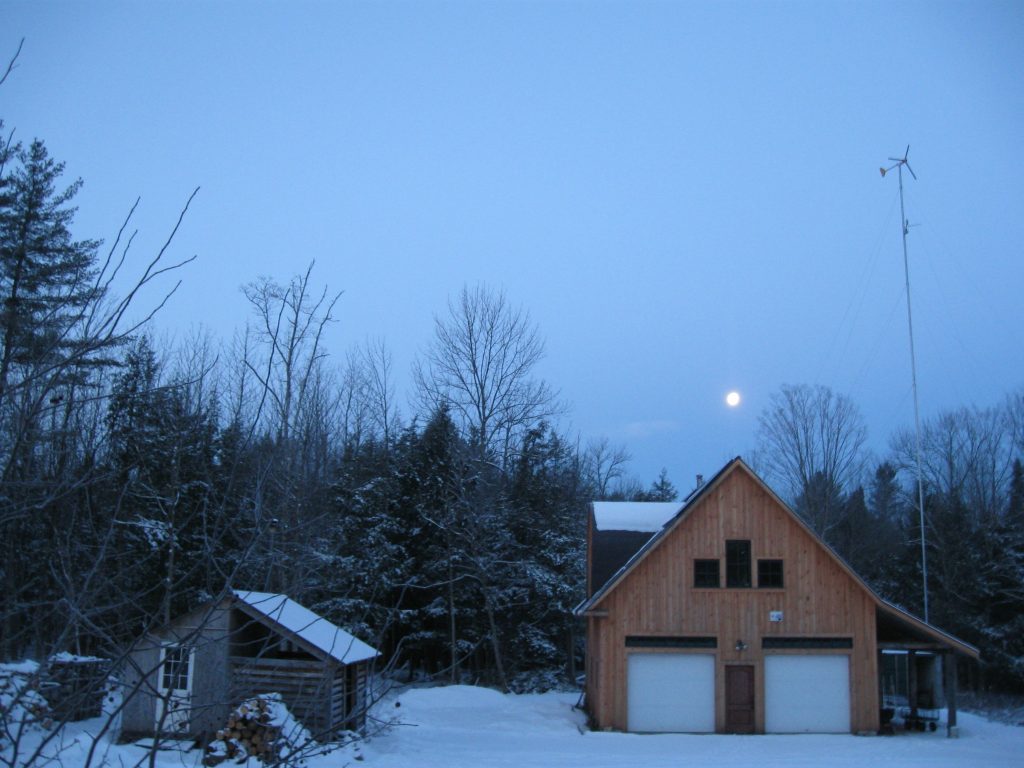
Our Ideal Off-Grid Home in Vermont
With that goal in mind, finding a place where we could build a life rather than work for a living, we crafted our “dream” list. We had a few non-negotiables, and while we knew we’d have to compromise in some areas, there were things we weren’t willing to budge on:
- Minimum of 10 acres
- House not visible from the road (privacy was a must)
- Wood heat and a sufficient woodlot to sustainably harvest fuel
- Land suitable for agriculture (we had big plans for gardens, livestock, and more)
- Within 30 minutes of a small store for essentials (don’t get us wrong, we were ready to live off the land, but a bit of convenience never hurt. At that point we were living on a small lot, but 45 minutes from groceries, so we already knew that pain.)
- Access to water (whether a well, spring, or stream, water was a priority)
- No easements, right of ways, or snowmobile trails running through the property (we needed our peace and quiet)
- Located in Vermont (a state we loved for its natural beauty and tight-knit, homesteading-friendly community)
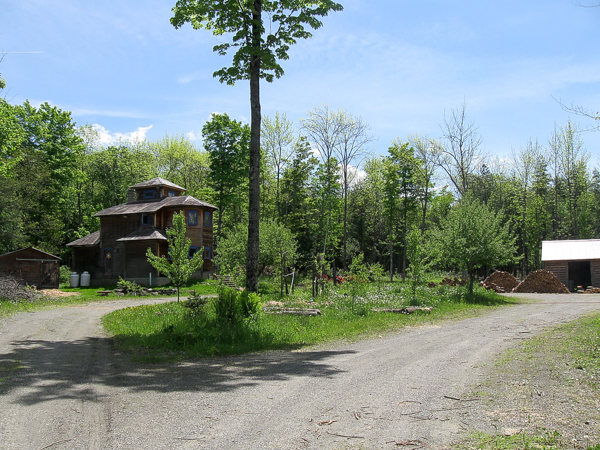
At first glance, the options in our price range seemed to fit the bill, but after visiting several, we quickly realized that most of them were a lost cause. Crumbling foundations, floodplains, trash heaps, and even junkyards… the list seemed endless.
We couldn’t help but laugh at the thought of what would happen to some of these properties if they were to just be burned to the ground—probably a favor to humanity and the environment. It was discouraging, to say the least.
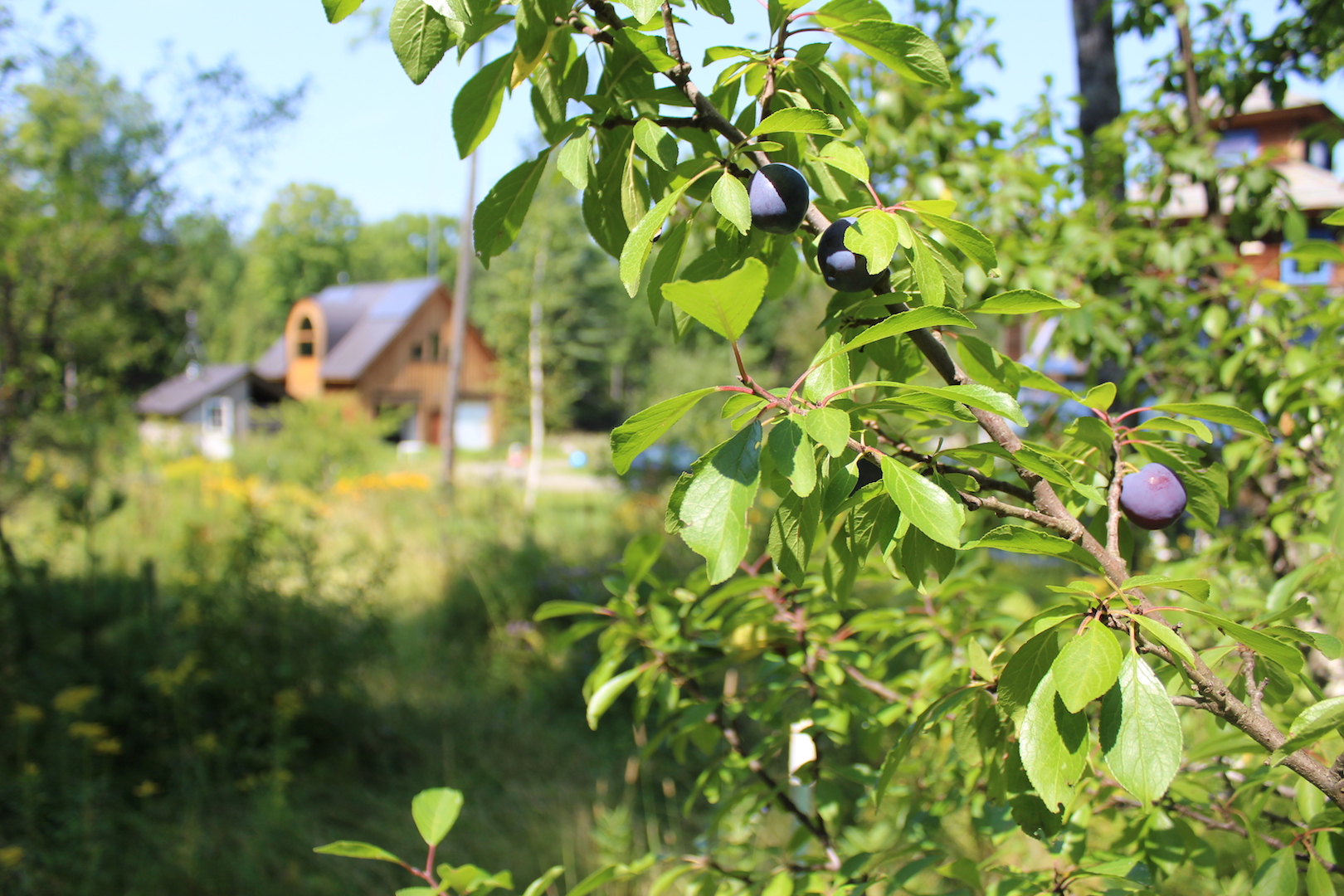
At one point, one of the houses was so utterly un-salvagable, and I just couldn’t hold back anymore. that I turned and looked at the real estate agent and said, “This place needs to be burned.”
She didn’t skip a beat, saying, “Oh, that’s easy enough, the fire department is always looking for practice homes. You can have them come out an burn it down for you, no problem.”
Clearly others had said similar things, and she was hoping to at least sell the land. But the land was no picnic either. Vast tracts of…swamp.
Patience. Continue to save. Stay the course.
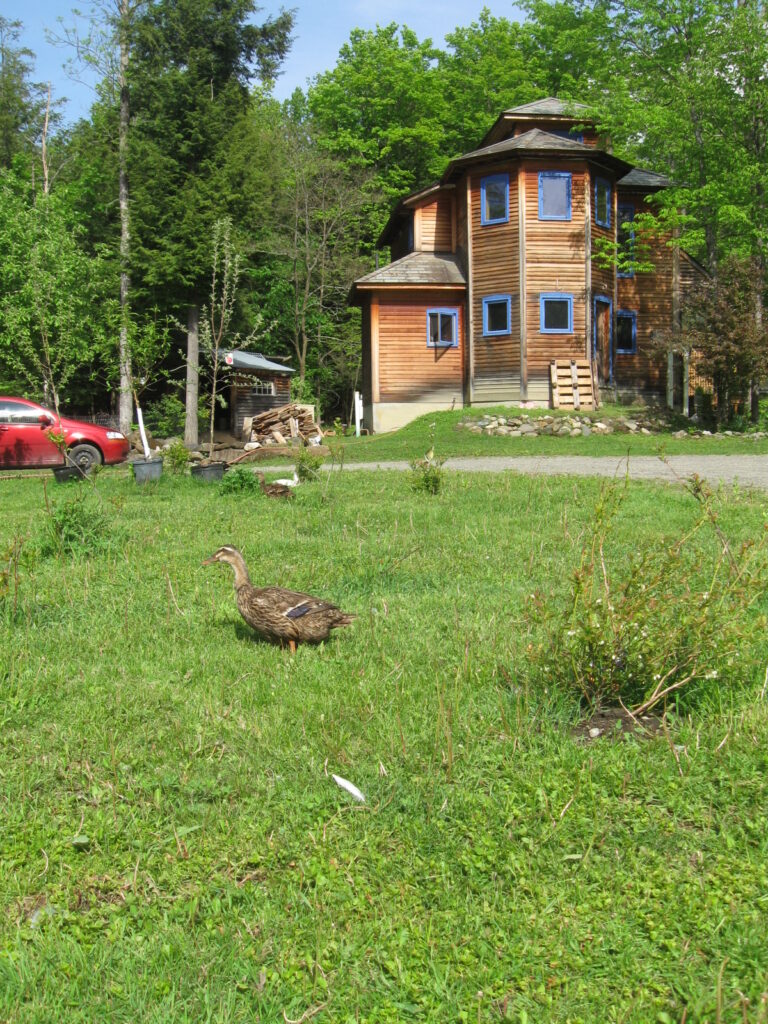
The Hunt Continues
We kept watching the market, checking real estate sites daily. Over the next few years, our savings grew, and so did our budget. Suddenly, we started seeing real possibilities.
By the time we hit our third summer of hunting for the perfect homestead, we were seeing around 8-10 viable properties a month. After some initial phone calls and background research, that list would typically dwindle down to 2 or 3 homes worth actually touring. And yet, even after all that, something was always off. Crumbling foundations, flood risks, you name it.
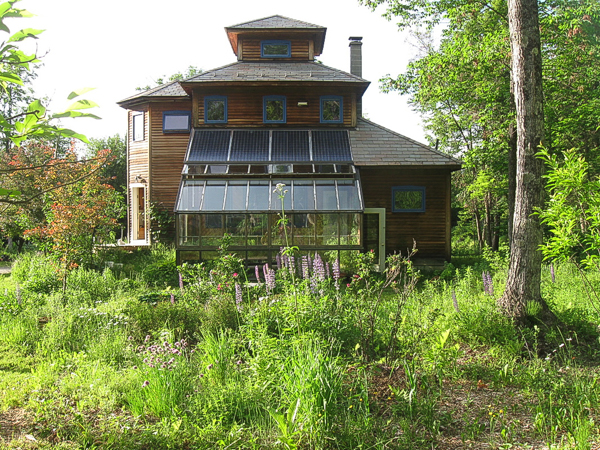
Enter Google Earth. Our new best friend. Satellite images and street views saved us countless hours of driving and trekking across the state. We’d scope out neighborhoods, get a lay of the land, and rule out properties from the comfort of our couch.
Finally, after what felt like an eternity of searching, we found it. The dream compound.
A former organic farm with a stunning timber-frame house and a greenhouse on 20 acres. I called the agent immediately, only to be told they’d just accepted an offer.
It had been listed for just 12 hours. 12 hours. We had almost found our slice of heaven. But now, we knew for sure that it was out there.
Patience. Stay the course.
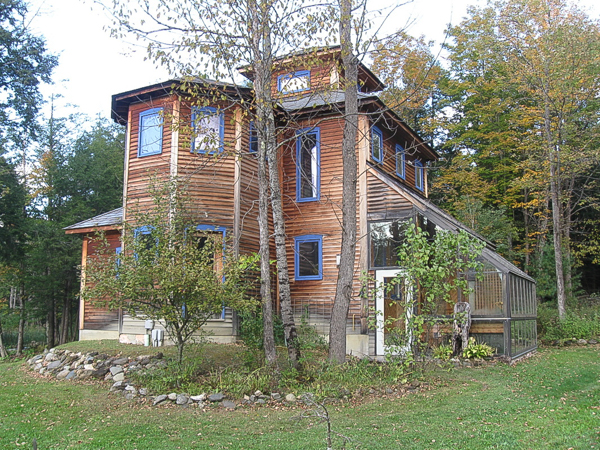
And Then, We Found It
A few weeks later, a new listing popped into my inbox. This time, it was the one. The perfect place. Multiple structures, all nestled nearly 1000 feet from the road, surrounded by dense woodland. A whopping 30 acres, an attached greenhouse, super-insulated, wood heat—everything we wanted.
Except… it was off the grid.
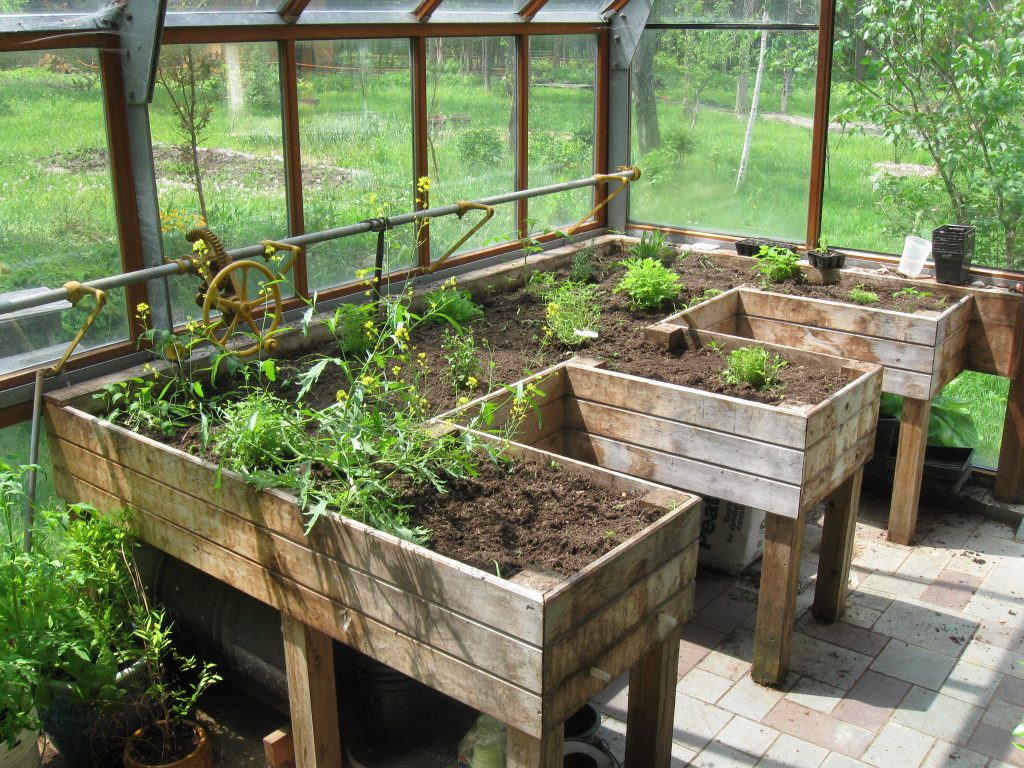
It was a big leap for us. While we had years of experience with agriculture and animal husbandry, we knew nothing about off-grid energy.
Solar panels? Wind turbines? Charge controllers? Batteries?
What were all these things, and would they be able to power modern conveniences? Could we even use computers? What about a washer and dryer? How much maintenance would it need, and how often did we have to replace things?
In short, we had no idea what we were getting into.
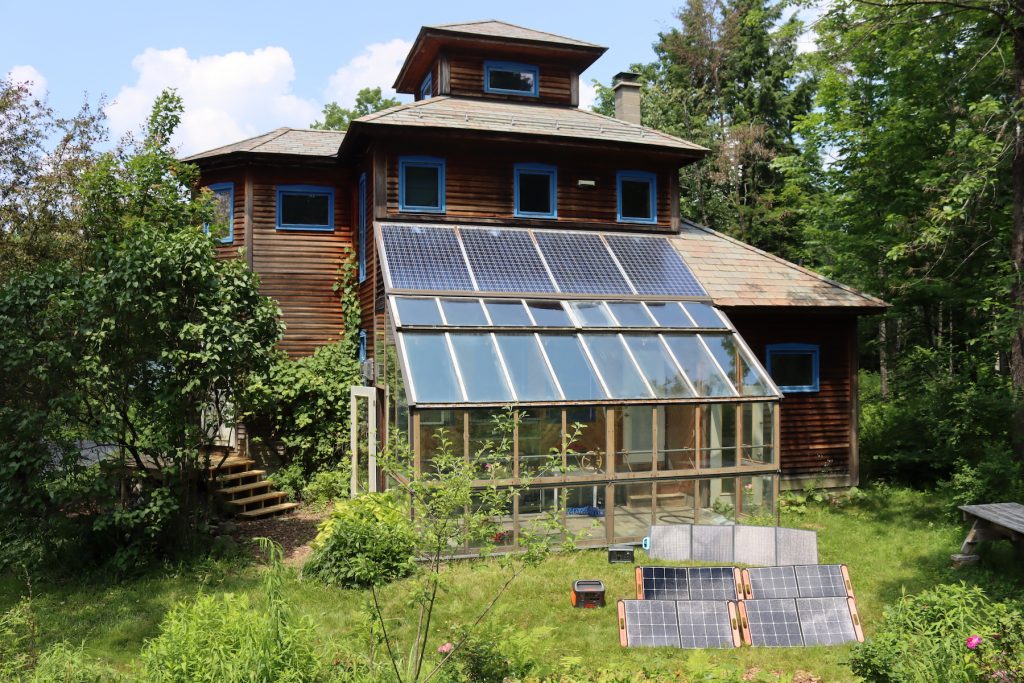
After several long nights of discussion (and more than a few glasses of wine), we decided to jump in with both feet. What better way to learn than immersion? It was terrifying, sure, but it was also exciting.
In hindsight, it was a little crazy. The first three years off-grid were a steep learning curve, and there were more than a few moments when we thought we’d made a huge mistake. But looking back now, we wouldn’t trade it for anything. The challenges? Absolutely worth it.
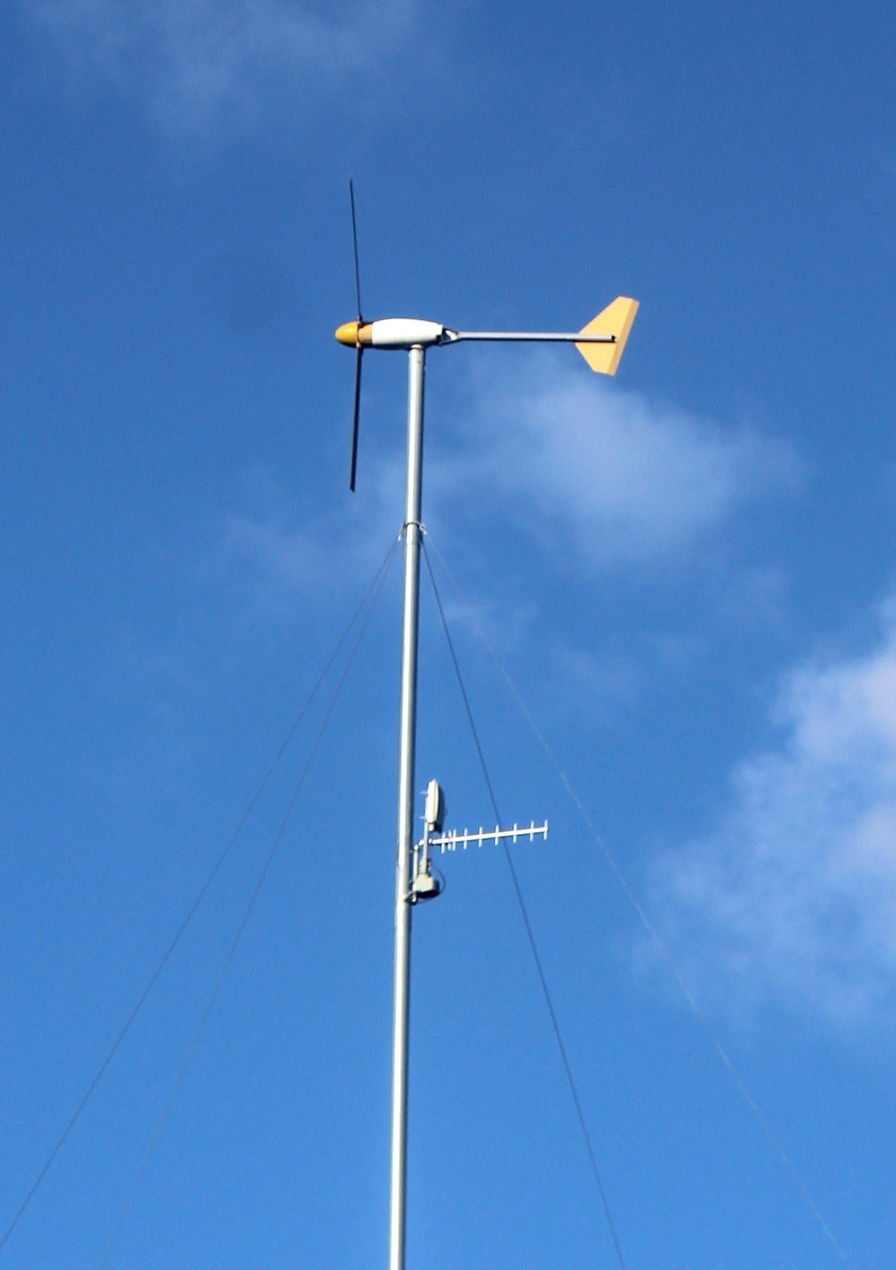
Living the Off-Grid Dream
We’ve now been living here for more than a decade. Our slice of heaven. And it’s everything we dreamed of and more.
Since moving in, we’ve learned an immense amount about off-grid living. We’ve mapped out our entire power system (click here for the tour and specs of our setup), and made countless improvements. Today, we both work as independent contractors, making a full-time living without ever having to leave the property.
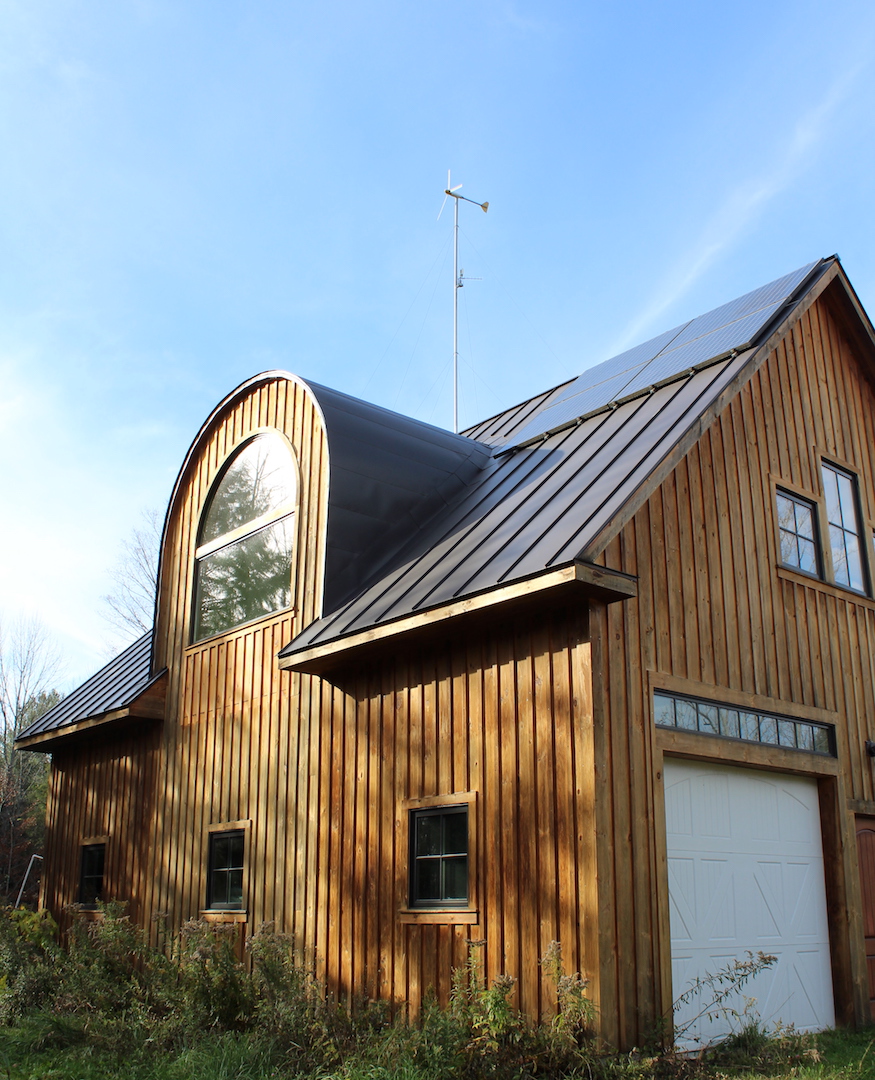
We’ve started a family, and this is the only life our two young children have ever known. They think that everyone taps trees for syrup, forages wild berries in the woods and grows their own mushrooms.
If on a trip to the store we happen to get behind more than one car on a wide open road, they call it a traffic jam. (That one’s particularly hilarious to me, as I grew up just outside LA.)
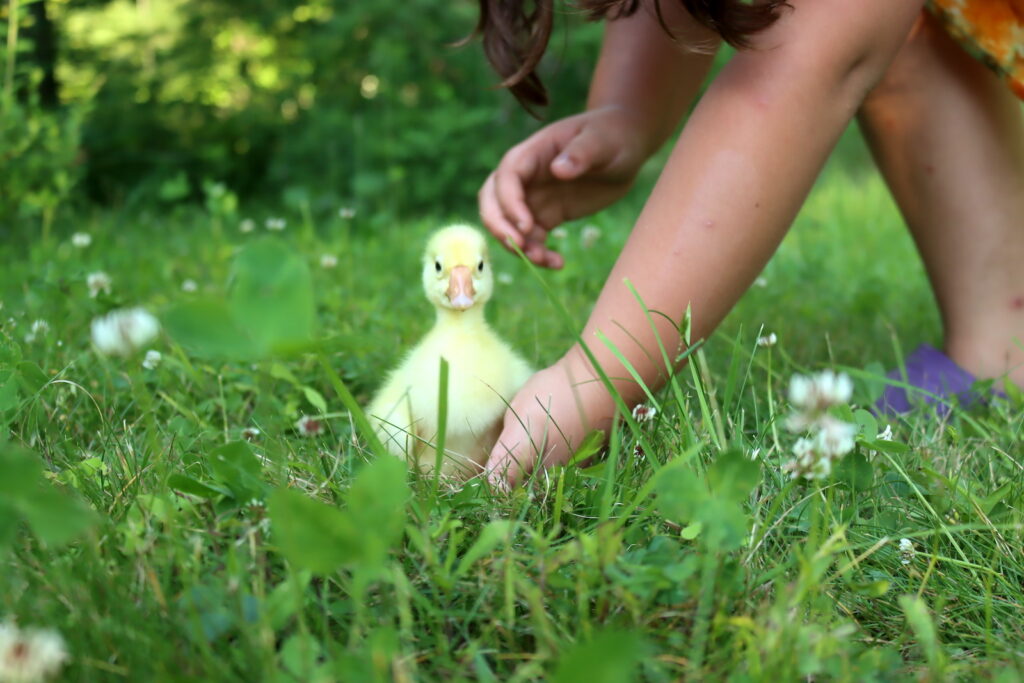
They spend their days snuggling baby geese, frolicking in the pond, catching salamanders, bottle feeding kittens, and building tent platforms in the woods.
But most importantly, they don’t know the stress that is growing up with parents completely burned out by the daily grind. And, my friends, that is absolutely priceless.
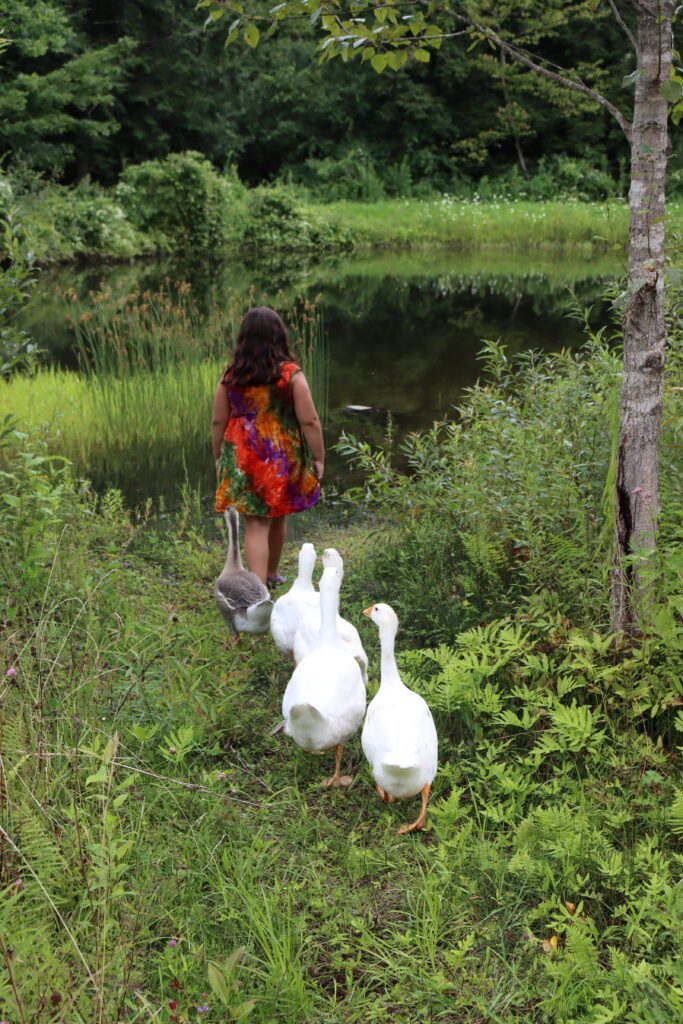
Looking back, there are definitely things we wish we’d budgeted for or thought about more carefully before making the leap. But all in all, we’ve never once regretted making the move.
If you want to hear more about our journey, our successes, and—most importantly—our mistakes, sign up for our newsletter. The blog dives deep into all things self-sufficiency, and we’re here to help you learn from our experiences before you take the plunge yourself.
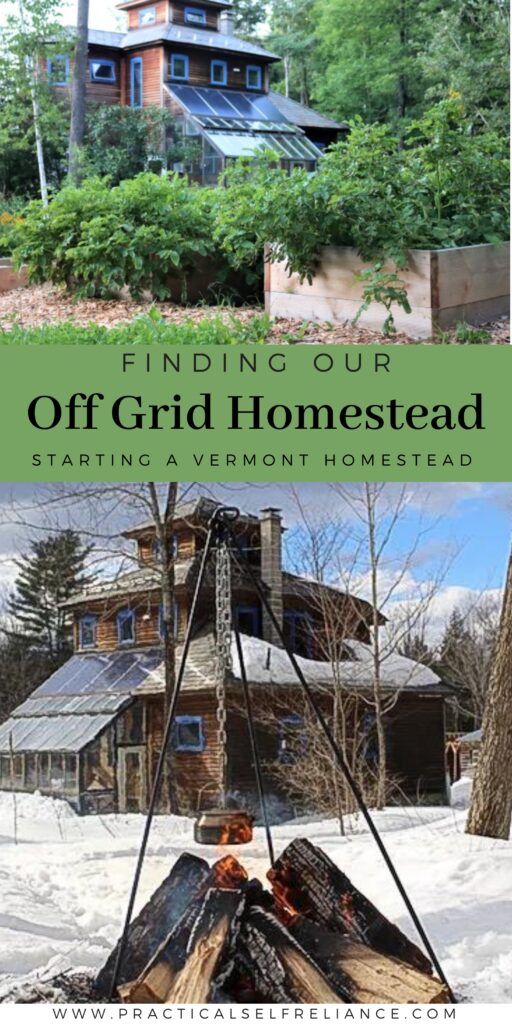
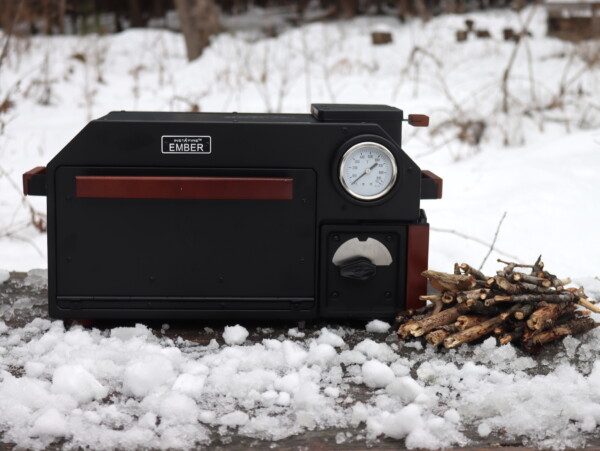
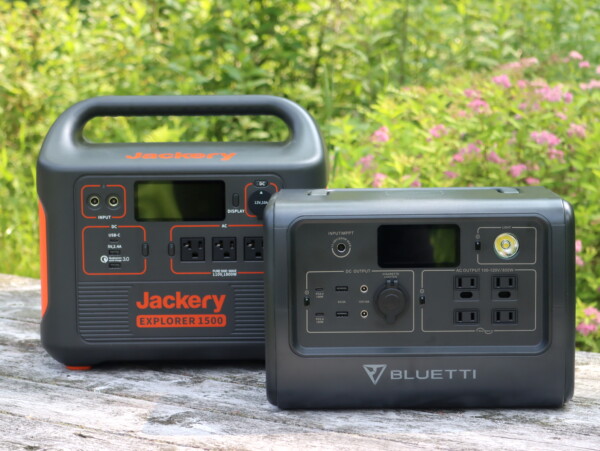
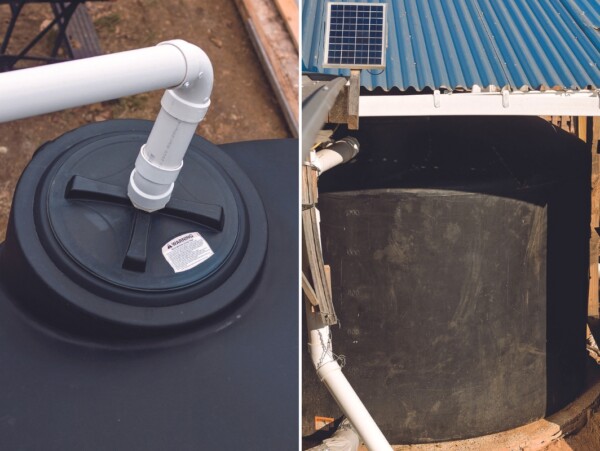
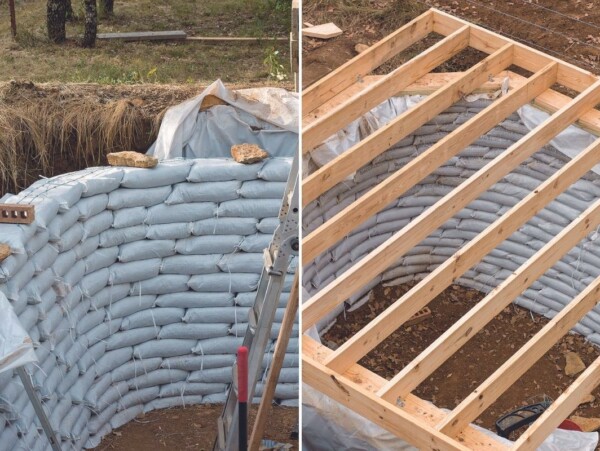
This story is beautiful; it is the modern-day adult equivalent to everyone’s childhood dream of “running away from home and living off the land”. It is fantastic that you managed to acquire the agricultural and animal husbandry skills, and are able-bodied and resourceful enough to make a successful run at this lifestyle. Not everyone could.
I liken this to Dick Proenneke’s “Alone in the Wilderness” undertaking in the 1960s, in which he decided to homestead in remote Alaska by himself. He was already a master woodworker and decent outdoorsman and gardener when he set out. It would be naive for the average layperson to try what you, or Mr. Proenneke, did, without acquiring the prerequisite years of skill and knowledge.
Thanks for opening up this window into your world, for those of us who dream but don’t yet have (or may never acquire) all the fundamental skills and abilities to experience it for ourselves.
Cheers.
in the process of buying an off the grid house in Walden VT and like to install a greenhouse attached to the front of the house 8′ x 36′ southwest facing and wondering if you have any other tips as I read your article on attached greenhouse pro and cons. Thanks signed up to follow you
More and more thinking people are looking at your way of living. My Grandparents in West Virginia lived on 30 acres with ponds, woods, gardens, bees. Wonderful place to grow up. As retiring someday looms ever closer, all of your conversation makes more sense. Thank you for making these options available to more of us!
So how many acres for a wood lot is necessary to heat an average size home? I never understood how many trees make a cord? Thanks!
It really depends on how good your insulation is, and how you’re heating your home (woodstove inside, external boiler, etc) and what your climate is like. It also depends on the type of wood as some types of trees have more heat energy (BTU’s) in their wood than others.
As a rule of thumb though, in Vermont, the old timers say you can sustainably heat an average home on 10 acres of well managed woodlot. It seems about right to me, but I don’t know for sure.
Thank you so much! Sorry about the repeat questions, I’m new at this and wasn’t pulling up your answers.
Hello,
If you aren’t using wood to heat your house how many acres do you think are needed for a homestead in VT? Thanks.
I think you answered this already. Sorry!
Hello, if you don’t intend to have animals and don’t intend to heat with wood how many acres do you think is needed for a homestead? Thanks
Without needing wood heat, your land could be quite small. An acre of land, managed intensively, could feed a family. That’s assuming you’re willing to buy in things like oils and flour for cooking. If you want to grow grains and oils things get complicated.
Thanks so 10 would be more than sufficient?
Yes, totally sufficient, provided the land was usable. We looked at one property that was 50 acres, but it was all north facing ledge, about 2 inches of topsoil over rock. Ten good acres is plenty though.
Hello,
Are there special websites for off grid homes? The big sites like realtor or Zillow don’t recognize off grid as a search option. Do you know any realtors who handle these sort of things? Thanks. Great blog.
Charles
That one’s tricky. I’m just starting to research a post on it, because I get that question a lot. I know mother earth news has a home listing page, and there’s a site called survivalist realty that has a lot of off grid homes. I think there’s also a facebook group for off grid land available. Our find was more or less accidental, but I’m going to put up a post about this soon.
Really Great Post. Thanks for sharing.
Impressive! My husband and I talk about this quite a bit but the thought of actually doing it makes gives me butterflies. I think it’s incredible that you are living so independently. What a dream. Thanks for sharing!
I just stumbled upon this on Pinterest. I also have an off grid house in central Vermont and your house looks very familiar. I think we might be neighbors!
Neat! Send me an email at Ashley dot Adamant at gmail dot com if you want to connect =)
Please sign me up for your newsletter!
Thank you for your posts.
I would like to get your newsletter. Thanks
Yep like to go on your newsletter please.
Darren
Added! The form above is fixed, so that works too.
I have sighed up please let me know if it took. Thank you so much, Patsy Mims
I’ve added you manually to my mailing list, thanks for checking! It didn’t go through before. I was having some issues with the signup box, but it’s resolved now. Thanks for subscribing!
I love this! Our home is situated in a village far from Las Vegas, the nearest city. We wanted so badly to get out of Vegas. We are off grid too! It was a huge leap of faith, but we love it! We are currently searching for our forever retirement home, and for us , being off grid is now a big plus! Good luck to you!
Where is this community? We are in vegas and want out.
Can you please sign me up for your newsletter
Sure. Done.